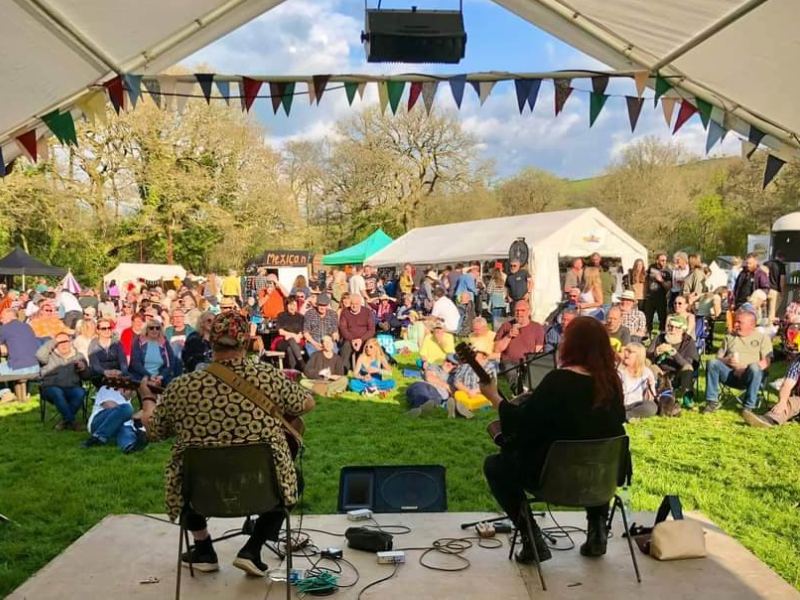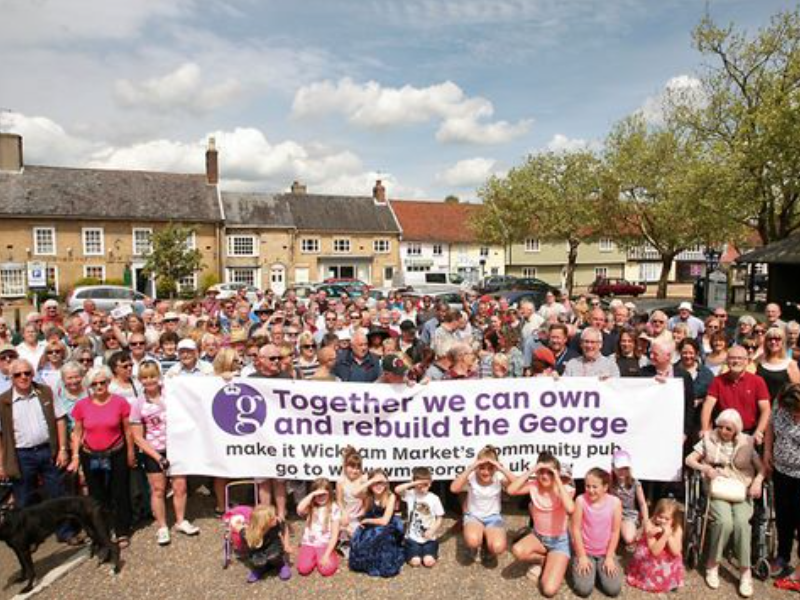This National Inclusion Week (15-21 September), we’re celebrating how Plunkett and community businesses are building inclusive workplaces and creating lasting impact across the UK.
Founded by Inclusive Employers in 2013, National Inclusion Week is an annual celebration of inclusion and a call to action for building more inclusive workplaces.
As the week draws to a close, it offers a valuable moment to reflect on the conversations sparked, the ideas shared, and the progress made. At Plunkett, we’re proud to be part of this movement; working alongside community businesses to create inclusive environments and lasting impact across the UK.
How does Plunkett act on inclusion?
Plunkett regularly engages with the groups we support about how their activities dovetail with our areas of impact, one of which being equality, diversity and inclusion (EDI).
There’s a common misconception that rural areas lack diversity, and we aim to highlight voices that are often overlooked.
In January, Plunkett began our series of Special Interest Groups focusing on both EDI and tackling climate change. During the initial EDI session, we learned about the experiences of Joe, a young adult with Fragile X Syndrome who works at The Locks Inn, a community-owned pub in Norfolk. Joe’s Mum, Penny, shared how this opportunity has transformed Joe’s life and generously fundraised to support our cause.
Another discussed question was “who isn’t here?”. Who in our communities is missing from conversations about local issues and community-owned businesses?

Cwmdu Inn, Carmarthenshire, Wales – a community pub where everyone is welcome
Our second EDI session, held on 9 September, explored hidden diversity in rural areas – such as single parents, refugees, and neurodiverse individuals.
As part of this discussion group, we were joined by Becci Walker from Spectra – an organisation that are responsible for delivering the Care Leaver Covenant, a programme designed to support young adults leaving care.
Around 10,000 young adults leave care every year and statistically they are more likely to end up homeless or in prison than to attend university. Becci was able to illustrate the challenges faced by those leaving care and how community-owned businesses might support them through a sometimes-difficult transition.
Attendees also heard from Plunkett adviser, Donna McArdle. Donna spoke about ways in which community-owned businesses might diversify their volunteer base while at the same time, supporting underrepresented groups to upskill and gain on-the-job experience.
Our Special Interest Groups have led to the development of resources on this topic, and it will be made available for Plunkett UK members via the Member Hub.
In this video, our Impact Officer, George Ogier, gives an overview of the session.

The pub, after the fire
The George at Wickham Market, Suffolk – championing inclusivity since day one
Community-owned businesses are a powerful vehicle for inclusion, and we’re continually inspired by the incredible work of the groups we support. One standout example is The George at Wickham Market, winners of the One to Watch Award at this year’s Rural Community Business Awards.
Their 16th-century Grade II-listed pub, the last remaining one in the village, was severely damaged by fire in 2013. Thanks to the dedication of the local community, it has now been restored and reopened, with inclusivity at the heart of its mission from day one.
As part of the restoration, the previously inaccessible first floor was transformed into a welcoming Activity Space, designed to address issues like social isolation and mental health. A full programme of events is already underway, offering something for everyone, from a dementia café and Pilates for Parkinson’s to art exhibitions and Argentine tango lessons.
Inclusivity is embedded into every aspect of the project. The building design and activity programme ensure that everyone can participate, regardless of physical or mental ability. Volunteers and committee members are receiving training in disability, hearing, visual, and dementia awareness to help create a truly welcoming environment for all.

Let’s continue the conversation!
To learn more about our work around EDI, you can read our dedicated webpage, and click the button below to read our Impact Report
If you have any other questions or you would like to speak to someone about Plunkett UK’s work, please email info@plunkett.co.uk or call 01993 630022.





